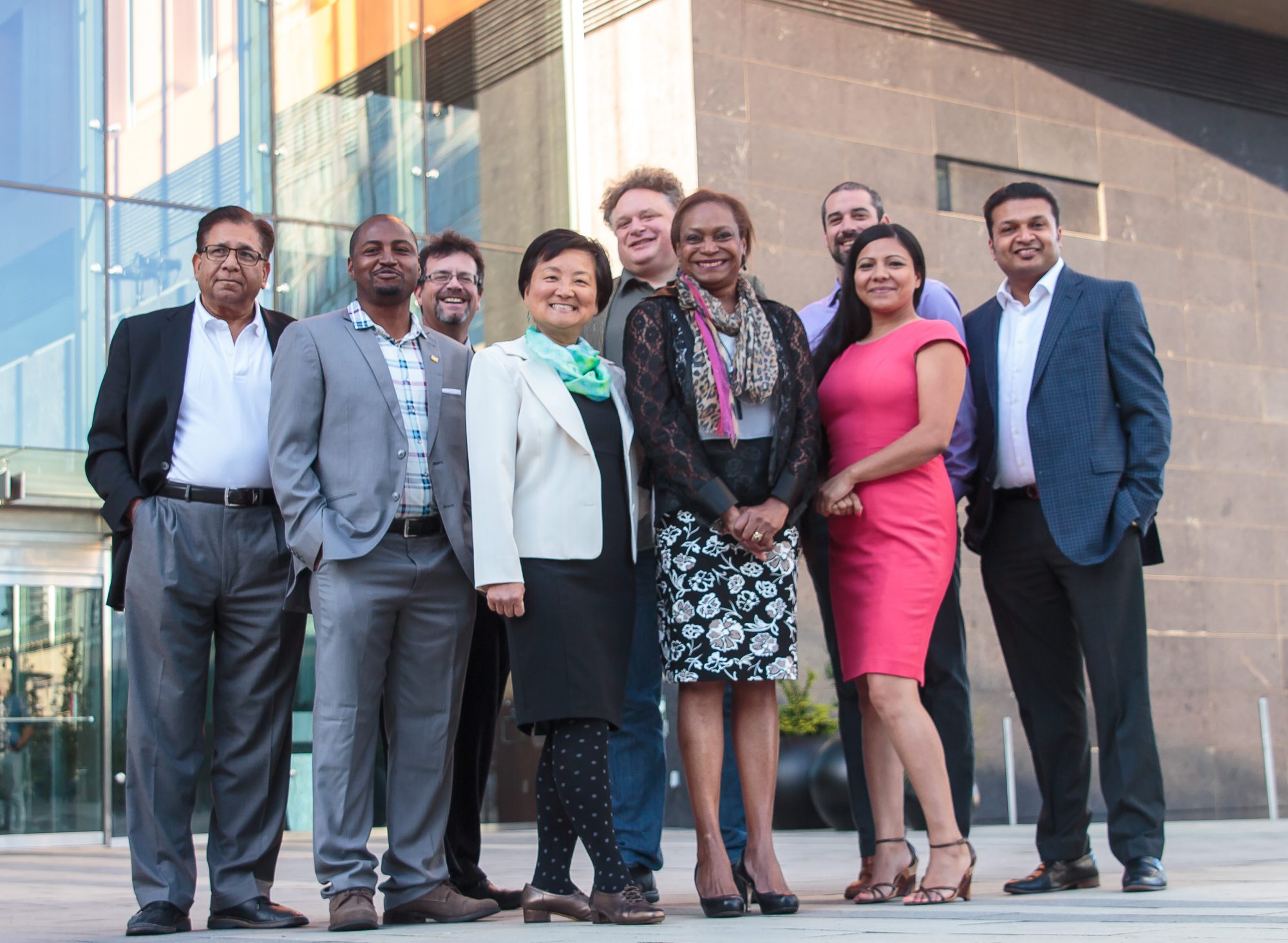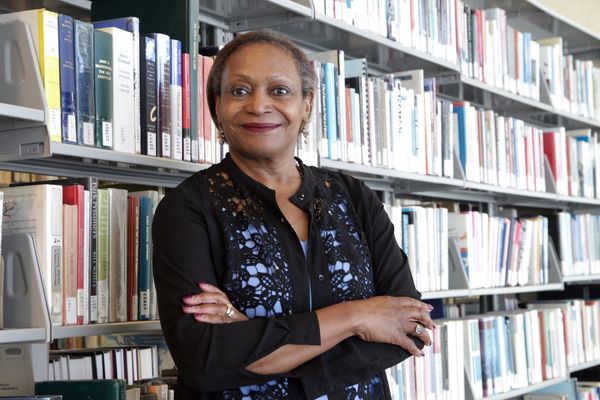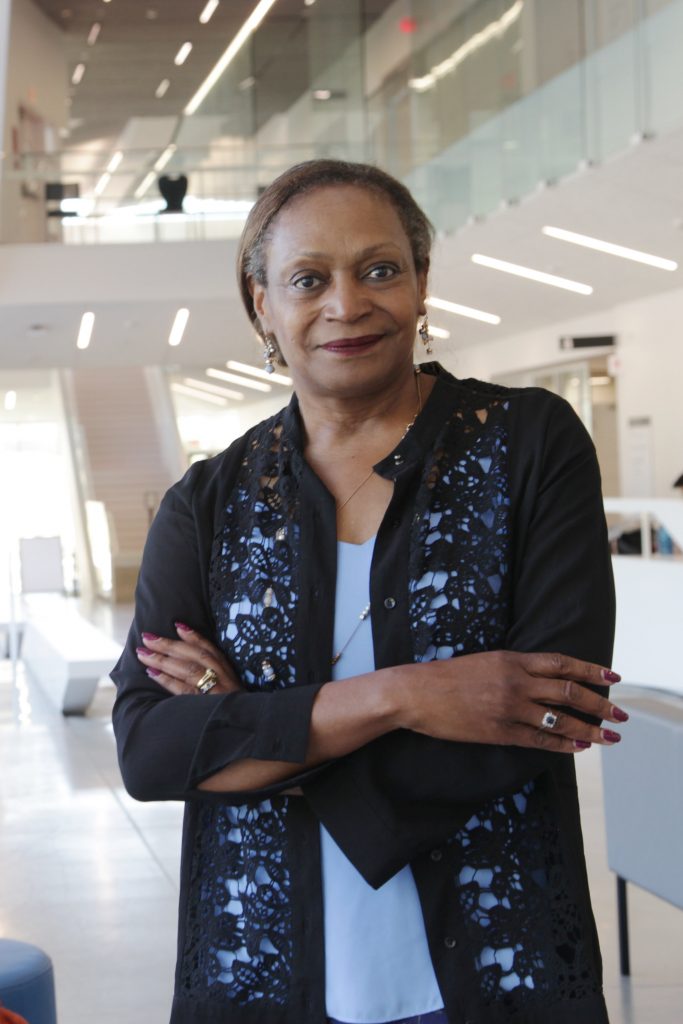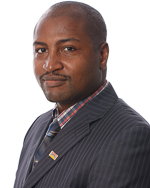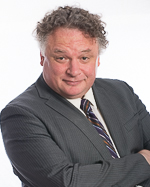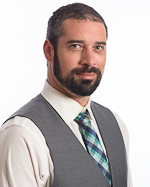One of the most striking things about running for office in Surrey is the gradual realization that while Surrey seems, both to residents and outsiders, to be a poor city, it is actually rich. While underspending on everything from policing to community centres to sidewalks, the city is not teetering on the edge of a budget deficit. Instead, it posted a $300-million budget surplus last year. Out of roughly a billion tax dollars in revenue, the city chose only to spend 70 cents of every dollar collected and stuffed the rest of the money in a sack.
And it is not that Surrey is meeting its residents’ needs while saving money. Instead, the city struggles to handle the most basic challenges, performing worse than cities with a far less impressive tax base when it comes to things like snow removal in the winter. Looking at the sea of school portables, multi-month waits to have building permit applications even opened, and temporary modular housing that is bursting at the seams, Surrey does not just come off as a poor city. There is a more precise term of the magnitude of its problems.
Surrey is underdeveloped. I mean this in the way the United Nations means it. For all of its wealth, Surrey struggles with development challenges: its government programs are consistently over capacity; its citizens are disconnected from one another; the police are not clearly in control of all of the parts of the city; underserviced students are often taught in temporary structures or asbestos-ridden buildings awaiting needed upgrades; basic services are often too far from citizens who need them; and basic infrastructure, i.e. sidewalks, do not reach much of the population.
How do we square the idea of a place being both rich and underdeveloped? Scholars of international development have considered this problem. While many underdeveloped countries are poor but have an elite rich group of citizens, countries that are, overall, rich yet remain underdeveloped are rarer. In 1997, economist Timur Kuran examined that problem in the Middle East, looking at states in the region that had a literate populace and abundant natural resources but still lagged behind in measures of development.
While he had been expecting to find a pattern based on secularization or religious extremism, he found something else: what produces underdevelopment in wealthy places are one-party state structures and public squares that are hostile to debate. In this way, while eschewing religious extremism and propounding secularist ideologies, Iraq and Syria suffered even more dire underdevelopment than Iran, a theocratic state but one whose public square and party system, while curtailed and repressive, were significantly less so. And little has happened since 1997 to refute Kuran’s findings.
I want to suggest that many of Surrey’s problems emerge from the fact that, for reasons largely unconnected to any political oppression, the city has become, functionally, a one-party state with a negligible public square and that this is driving underdevelopment.
Former council candidate Stuart Parker says Surrey is underdeveloped because there isn’t sufficient public discourse about policy alternatives.
Former council candidate Stuart Parker says Surrey is underdeveloped because there isn’t sufficient public discourse about policy alternatives.
It is Surrey’s culture and habits that have gradually changed it into a one-party state. In 1996, Doug McCallum and his Surrey Electors Team (SET) swept into office, winning seven of the nine council seats and all but one school trustee seat. To this lopsided council, McCallum brought an autocratic style that effectively moved all real discussion of public policy to within the caucus of SET, to the extent that his leadership permitted this. For the next three elections, SET functioned as a hegemonic political force within Surrey, never coming anywhere close to defeat. However, as his coalition frayed, due to growing rifts between centre-right moderates and extremist theocrats whose antics, especially on school board, had begun to damage Surrey’s reputation as a place to do business.
However, disagreements among the elements of SET remained inside the party. A major debate was taking place about how to govern Surrey and how the city would be perceived but this did not become a debate in the public square. Instead, Surrey’s public square shrank with a seemingly unanimous party holding all or nearly all of the seats on the city’s council and school board. While opposition members often spoke effectively against the most egregious elements of SET’s agenda, there was a disparity between the real opposition, which was, to the public, largely silent, and the formal opposition.
When McCallum was finally challenged from within the SET by councillor Dianne Watts in 2005, the platform on which she sought the mayoralty, the people who supported her bid, and the arguments made in favour of her new approach appeared out of nowhere, completely unrelated to the discourse of the NDP-affiliated SCC/SCE opposition of the previous nine years.
Following Watts’s victory, rather than a balanced party system emerging, the tendencies toward a one-party state culture that had begun under McCallum instead intensified. All sitting SET councillors and trustees and most SCC/SCE councillors and trustees gradually crossed, after the election, to Watts’s new party, Surrey First. Surrey First, unlike SET, put itself forward as nonideological and multipartisan. Like the one-party states of Africa after decolonization, the party saw its job as achieving a consensus amongst disparate constituencies within Surrey through its own caucusing process and internal democracy. Disagreements among groups within the city were to be debated not in council chambers but instead in closed-door meetings among local notables, community leaders, and the Surrey First caucus.
As mayor of Surrey, Dianne Watts worked with a council entirely made up of members of her Surrey First party.
As mayor of Surrey, Dianne Watts worked with a council entirely made up of members of her Surrey First party.
Under Surrey First, the city became the one-party state that McCallum had aspired to create. And, consequently, debate about the city’s policy direction became completely cut off from the public square. Council votes took place not as a means of resolving disputes but as a unanimous rubber stamp of disputes already resolved. From 1996 to 2018, municipal political discourse gradually vanished from Surrey and the ideal of the one-party state became the norm, to the point where the two opposition parties that contested the 2014 election sought to mimic Surrey First by nominating multipartisan, ethnically diverse slates with almost no policies. By 2014, even elections were not the time to have substantive policy conversations about the city’s direction.
Political discourse is something that takes practice and constant engagement. It requires viable opposition parties that do not shut down between elections but carry on the discourse. It also requires a fourth estate with which the public is engaged. But local English-language media outside of the Semiahmoo Peninsula have among the worst readership and listenership rates of the Lower Mainland. While the Peace Arch News remains an important source of news for the older, whiter, residents of Surrey south of the Nikomekl River, the Surrey Leader is ignored as a source of news. Like the Leader, Pulse FM does its best to cultivate a Surrey audience but fails for a similar reason to the Leader: residents of Newton, Whalley, Guildford, and Fleetwood do not see themselves as part of a small parochial community that can be adequately served by a biweekly newspaper. They see themselves primarily as part of the Metro Vancouver region and residents of the second-largest city therein.
They expect to obtain their news from daily or hourly media as befits a city of more than half a million people. But popular media covering Metro Vancouver typically fall short in reporting on Surrey’s public square because, when the city reached this status as a demographic juggernaut, the political discourse of Surrey had already become nigh undetectable between election seasons. For this reason, outside of election time (and for many media, like the CBC, during elections as well), there is negligible reporting on the issues and ideas with which the city is wrestling.
In this way, Surrey has become, for different reasons, like the one-party states of the Middle East: a place where it is impossible for the state to have a conversation with itself out loud, a place where the public is excluded from the major debates between elections because the debate takes place within a one-party state and an atrophied, shrunken, ignored news media. Although the causes are different, the results are the same: underdevelopment.
Underdevelopment in rich places, Kuran explains, is caused by an inability to debate big plans and ideas, and a lack of capacity to correct for errors in major policy initiatives. The vibrant public square is not just necessary to preserve democracy; it is necessary to debug major policy initiatives and obtain the public buy-in necessary to implement them. One-party states come up with worse, less efficient ideas, which are then imposed upon an unenthusiastic public with little knowledge of either the merits or the defects of the policy.
This further impoverishes opposition discourse in such a state because critics of the government are essentially outside the discourse, yelling ideas into a void, ideas largely unnoticed by the public and similarly insufficiently debated to ascertain basic credibility or even rationality. This is how money gets wasted on crazy projects and this is how sane projects get cancelled.
So it is that Surrey today has a civic government that is proceeding with a major change in policing policy that received no serious public debate. The policy of leaving the RCMP and terminating the city’s contract with it was unveiled by my party, Proudly Surrey, in June. It was part of a pricey but necessary set of law enforcement policy fixes that included major changes to recruitment and training of officers and changes in their relationship with other governmental agencies. The idea of leaving the RCMP contract was taken up in August by Doug McCallum and his victorious Safe Surrey Coalition, except that the policy now entails a 10 percent cut in the number of officers, rather than a 30 percent increase. Gone is nearly every other reform we proposed that would make a local force necessary or worthwhile.
But the one city councillor elected as part of Surrey First—the former one-party state—Linda Annis, is so habituated to Surrey political culture that she has chosen to vote for every major policy initiative she ran against, supported by the new government. The idea that political debate should take place in council chambers, that Surrey should have a permanent public square where ideas are tested and contested, is gone; Annis appears to be preparing to follow in the footsteps of the dozen councillors and trustees elected with McCallum who crossed to Surrey First after Watts’s 2005 win. Now, it appears that the Surrey First trustees, some of whom were elected as part of McCallum’s SET decades ago, are now preparing to leave Surrey First and return to the team on which they started. Surrey’s one-party-state culture now appears so strong that pesky election results can’t get in its way.
The new council wants to scrap a $1.6-billion, fully funded light-rail project in favour of a $3-billion SkyTrain line.
The new council wants to scrap a $1.6-billion, fully funded light-rail project in favour of a $3-billion SkyTrain line.
That is why Surrey could choose an LRT without sufficient public buy-in for the project and then have that project defeated by a candidate claiming that he could fund a $3-billion asset using $1.6 billion of other people’s money that they had set aside for a different project.
Normally, one would look beyond elected officials, to the larger public square to generate some sort of debate. However, instead the public was treated to a cartoonish response to the RCMP contract from Critical Criminology, a group based at the city’s main university, Kwantlen, and headed by a member of the faculty. The instructor, Jeff Shantz, made a series of wacky claims, not just misrepresenting but actually lying about my party’s policy, and conveying an impression that the police force should be immediately be disbanded and replaced with volunteers. According to Shantz, the fact that Surrey is undergoing what scholar Stuart Hall calls a “moral panic” distorting our perceptions of crime, means that crime is such a non-issue that all policing can be safely abolished.
That’s a conclusion one could draw from these two sentences in Shantz’s closing section: “The move to a municipal force must be actively opposed as the public-funding drain and extension of police violence it will represent. And the RCMP must be defunded as well.”
This kind of intervention is typical in societies that have no real public square. Ideas are simply launched into a void, never managing to collide with another idea and begin some sort of dialectic in which we collectively think aloud. That’s why despite our disappointing vote totals, Proudly Surrey is going to continue meeting, continue speaking out, and continuing to help rebuild our city’s public square. You can join us fortnightly at Kelly’s Pub in Newton where we cosponsor a political reading group with Los Altos Institute.
Originally published at November 15th, 2018 at 8:47 PM
https://www.straight.com/news/1165126/stuart-parker-surrey-one-party-state
Stuart Parker teaches international studies and history at Simon Fraser University. He ran for Surrey council in 2018 as a member of Proudly Surrey.
